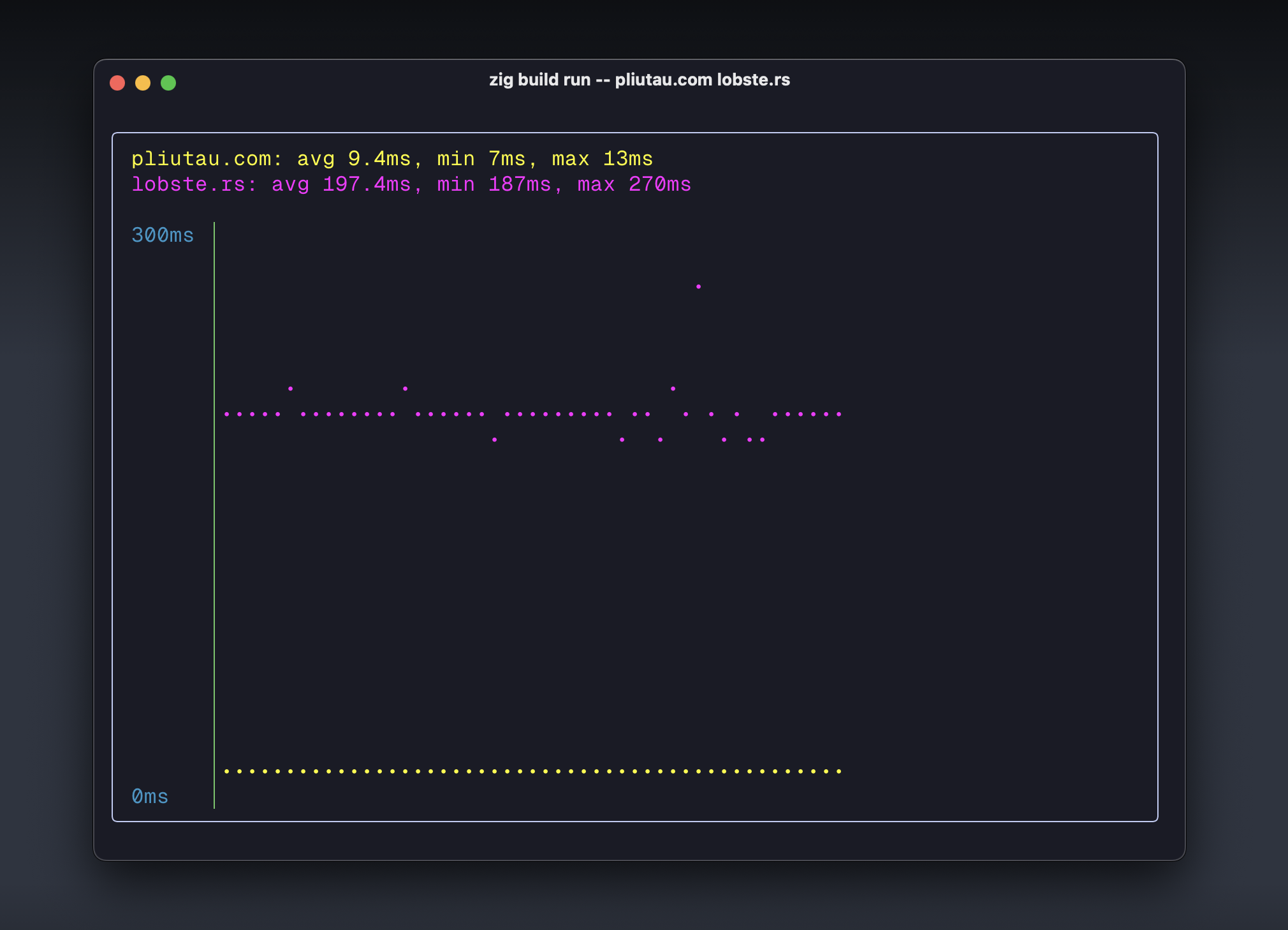My first Zig program - zigping
For me the best way to learn something new is to actually build something with it. Yes, there is some hype around Zig nowadays (Ghostty, Bun are build in Zig), but don’t listen to it, go try it out and see for yourself if it solves your problem or not.

So, after briefly exploring the language features of Zig, I decided to tackle a small project.
I love TUIs and decided to build a program similar to famous gping. Why? I think it’s a good learning ground as it means we have to work with network, threads, terminal, etc. I called it zigping :)
Small note: I am coming from Go, where the memory is managed and the garbage collector handles allocation and deallocation automatically. But not in Zig!
Setting up the dev environment
I code in both Zed and Neovim, and it’s very straightforward to setup Zig LSP called ZLS. Go to definitions/declarations work great right out of the box.
Build System
Ok, here I spent some time… For example, adding dependencies in Zig is not as simple as go get or yarn add, you have to fetch them manually first using zig fetch, then configure them in your build.zig file.
But on the other hand, this concept is really neat, so you can write your regular Zig code to package your program.
|
|
Build times depend on your program, but it felt a bit slow, also in ReleaseFast mode.
Zig’s compiler was working really great and it’s easy to understand the errors, especially helpful when you come from other languages.
Standard Library
I love not bloated standard libraries, and Zig has the basics covered there: ArrayList, Threads, file system… On the other hand, it feels like there are not much battle-tested external dependencies, but they will come with time for sure.
I want to mention a great library libvaxis which I used in this project to render the terminal view.
Multithreading
It’s generally hard to write a program that works with threads and build a robust strategy to control them. I used atomics to notify the threads and stop them gracefully for example.
|
|
Error Handling
After years of writing Go, I got used to if err := func(); err != nil { ... construct and I’m a admirer of it. And you can do a very similar handling in Zig, plus there is a nice use of try/catch.
You can simply use try if your function can return an error:
|
|
Or you can use catch to handle an error or even to assign a fallback value!
|
|
Memory Management
If you’re coming from Go as I do or from other languages where the memory is managed for you, you will spend some time understanding the memory allocation, how to free the memory, how to avoid memory leaks, etc. But it was a great exercise as I learned a lot while writing my program.
For example, I managed to make my program work, but when I exit I always had this nasty Segmentation Fault which was extremely hard to debug.
I used a single std.heap.GeneralPurposeAllocator throughout the codebase, but you need to pay attention to what you’re putting to memory and how to clean it up and when.
Enums, Switch
Just look, beautiful!
|
|
Type system
Zig is good at inferring the types automatically, so you don’t have to always write them down. Also it comes with many handy functions in standard library to cast some common types.
Syntax
Nothing to complain about, but required semicolons?
Resources
Here are few resources that helped me greately.
The full source code of zigping is here.
Conclusion
I didn’t write everything I experienced, and maybe forgot something, so will probably come out with another post later.
Zig is hard but worth it. Go try it out and see for yourself if you like it or not, if it solves your problem or not.
